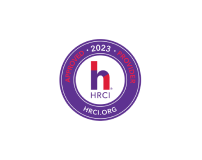Pregnant Workers Fairness Act
On April 15, 2024, the EEOC issued its final regulation and interpretive guidance (“PWFA Regulations”) for the enforcement of the Pregnant Workers Fairness Act (“PWFA”), a law that took effect in June 2023. The PWFA supplements existing federal anti-discrimination law by requiring covered employers to provide reasonable accommodations to qualified employees or applicants with known limitations related to pregnancy, childbirth, or related medical conditions absent an undue hardship on the employer. The final regulation will go into effect on June 18, 2024.
This rule provides additional protection for nearly 2.8 million pregnant workers each year, especially Black women and other women of color who are more likely to work during their pregnancy and live in states without pregnancy accommodation laws.
The Fair Labor Standards Act (FLSA) requires employers to provide reasonable break time for an employee to express breast milk for their nursing child for one year after the child's birth each time such employee needs to express the milk. Employees are entitled to a place to pump at work, other than a bathroom, that is shielded from view and free from intrusion from coworkers and the public.
Join Us to Learn
- What the Pregnant Workers Fairness Act (PWFA) is and the requirements
- How the PWFA mandates employers to follow reasonable accommodation regulations.
- What an eligible employee is.
- What an eligible Employer is.
- What the enforcement is for Employers’ who violate the PWFA.
- When allegations of violating the PWFA start.
- How Employers need to provide reasonable accommodation options to candidates and employees.
- What the Interactive Process is.
- How you can track the Interactive Process to avoid litigation and court settlements.
- The examples of what reasonable accommodations are allowed.
- What Other Medical Conditions are included in the PWFA.
- What constitutes an Undue Hardship for Employers to be exempt.
- How states are managing the state regulations around pregnancy protections.
- How the PUMP Act and Pregnant Workers Fairness Act help employees and have challenges for Employers.
- What the requirements are for the federal regulations and when they are effective.
- How Employers need to make changes to employee handbooks and policies to comply with the new regulations.
- How training managers and supervisors will help Employers comply with the new regulations.
Why You Should Attend
Employers should review their handbooks and other policies to ensure that they are updated to comply with these changes. In addition, employers should educate their supervisors and managers about the changes in the law to help avoid inadvertent missteps in the future.
Who will Benefit
- All Employers
- Business Owners
- Company Leadership
- Compliance professionals
- HR Professionals
- Managers
- Supervisors
- Employers in all industries
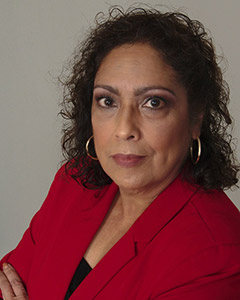
Margie Faulk
Margie Faulk is a senior level human resources professional with over 15 years of HR management and compliance experience. A current Compliance Advisor for HR Compliance Solutions, LLC, Margie, has worked as an HR Compliance advisor for major corporations and small businesses in the small, large, private, public, Non-profit sectors and International compliance. Margie has provided small to large businesses with risk management strategies that protect companies and reduces potential workplace fines and penalties from violation of employment regulations. Margie is bilingual (Spanish) fluent and Bi-cultural. Margie’s area of expertise includes Criminal Background Screening Policies and auditing, I-9 document correction and storage compliance, Immigration compliance, employee handbook development, policy development, sexual harassment investigations/certified training, SOX regulations, payroll compliance, compliance consulting, monitoring US-based federal, state and local regulations, employee relations issues, internal investigations, HR management, compliance consulting, internal/external audits, and performance management. Margie’s unique training philosophy includes providing free customized tools for all attendees. These tools are customized and have been proven to be part an effective risk management strategy. Some of the customized tools include the I-9 Self Audit. Correction and Storage program, Ban the Box Decision Matrix Policy that Employers can provide in a dispute for allegations, Family Medical Leave Act (FMLA) Compliance Guide, Drug-Free Workplace Volatile Termination E-Book and other compliance program tools when attendees register and attend Margie’s trainings. Margie holds professional human resources certification (PHR) from the HR Certification Institution (HRCI) and SHRM-CP certification from the Society for Human Resources Management. Margie is a member of the Society of Corporate Compliance & Ethics (SCCE).
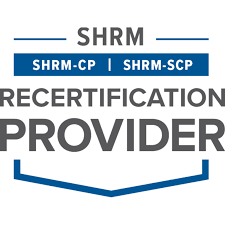
SHRM -
StandEagle recognized by SHRM to offer Professional Development Credits (PDCs) for the SHRM-CPSM or SHRM-SCPSM. This program is valid for 1.5 PDCs for the SHRM-CPSM or SHRM-SCPSM. For more information about certification or recertification, please visit - portal.shrm.org.
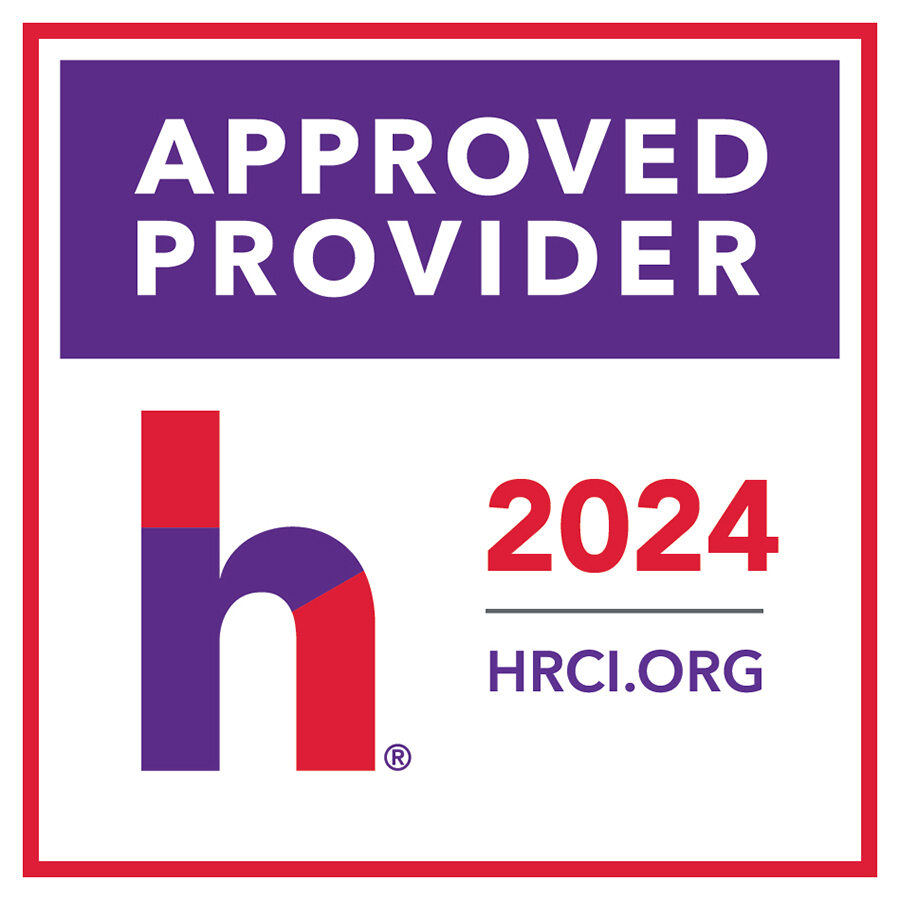
HRCI -
This webinar has been approved for 1.5 HR (General) re-certification credit hours toward California, GPHR, HRBP, HRMP, PHR, and SPHR recertification through the HR Certification Institute.
The use of this seal is not an endorsement by the HR Certification Institute of the quality of the activity. It means that this activity has met the HR Certification Institute’s criteria to be pre-approved for re-certification credit.
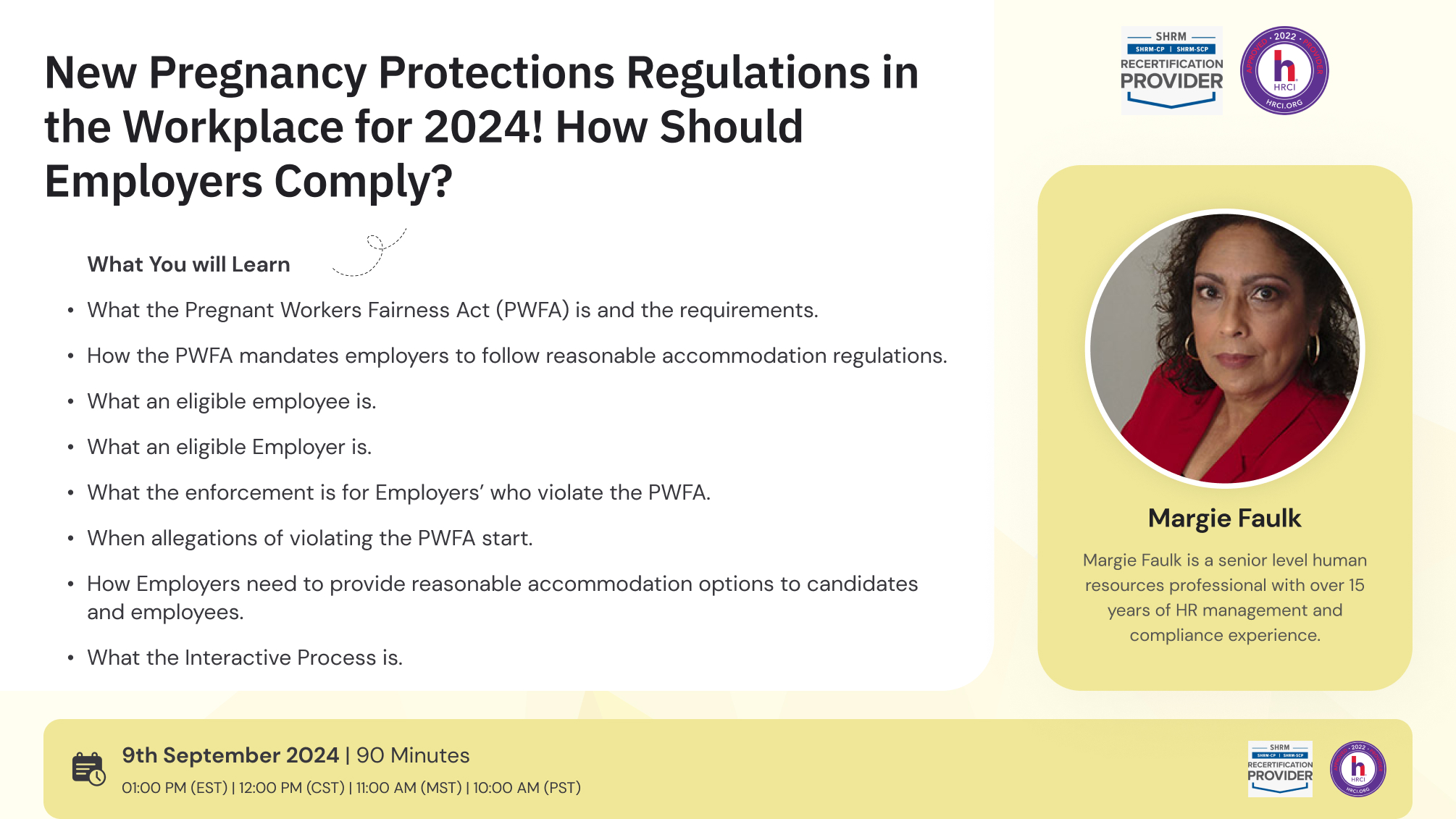
ACCREDITATIONS
